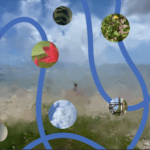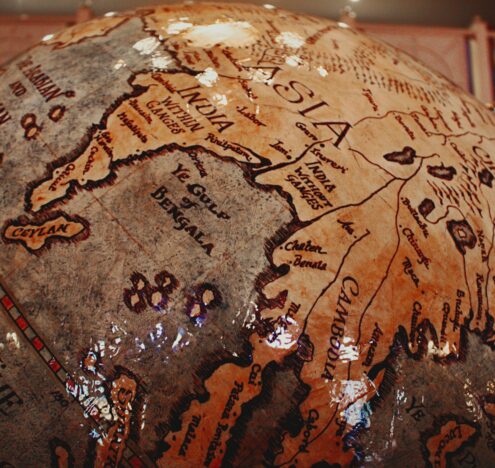This analysis was featured in Critical State, a weekly newsletter from Inkstick Media and The World. Subscribe here.
When a ship starts to sink at sea, the most important thing for rescuers to know is where it is, speeding any attempts at life-saving action. In the Mediterranean, the ships most likely to be in jeopardy are vessels of desperation, adapted for transporting people from the near east or African coasts toward a hope of refuge in Europe. Operating these vessels can be anyone from a complex social milieu to a fisherman trying to add extra revenue to criminal enterprises charging exorbitant fees on the promise of disembarking, not arrival. For rescuers, what matters most is that when they find such an overstuffed, underpowered ship in the sea, they’re able to save as many lives as they can.
In “Floating sanctuaries: The ethics of search and rescue at sea,” authors Itamar Mann and Julia Mourão Permoser interviewed search and rescue workers about the ethical dilemmas of rescue at sea. In so doing, they offer an in-depth portrait of maritime rescue work as built around creating sanctuary, amidst a literal and metaphorical sea of hostile factors.
While at sea and engaging in rescue, the actions are clear and their necessity immediate. What complicates this role is the way European states, which are the port of destination for migrants, can work to criminalize rescuers for their role in life-saving action.
“The act of rescue is based on an ethical imperative to save people who are at an imminent risk of drowning, and that imperative takes precedence over all other considerations,” write the authors. “Confronted with the drowning person, so the narrative goes, there is no choice to make and there is no dilemma.”
While at sea and engaging in rescue, the actions are clear and their necessity immediate. What complicates this role is the way European states, which are the port of destination for migrants, can work to criminalize rescuers for their role in life-saving action. This is not helped by the fact that many such smugglers, transporters, and traffickers see rescuers as a tool to complete the sea transit they initiate. For European prosecutors so inclined, this rescue work can be seen as a “transfer at sea,” or the taking of passengers in an illegal fashion.
“The accusation that NGOs are carrying out ‘transfers at sea’ implies that there is no real emergency, no real risk of drowning. But our interviewees stressed that knowledge about the location of a migrant boat does not eliminate the risk of shipwreck. Migrant boats are all unseaworthy and can sink at any time, they argued, even in the middle of a rescue,” write the authors.
That legal risk hangs over rescuers, who in interviews repeatedly told the researchers that they make an effort to learn the minimum amount about their rescued passengers. Instead, rescuers vouch for migrants as simply people who needed rescuing. It’s a legal and ethical move, letting the rescue ships attempt to deliver people to safety without immediately subjecting them to harsh border laws.
These rescuers “seek to create a different kind of deterritorialization, one that establishes spaces of resistance against state sovereignty. By adopting internal regulations that suspend as much as possible the applicability of criminal and migration laws, rescuers seek to transform the ship into a floating sanctuary,” conclude the authors.




















